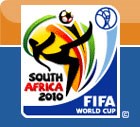
Top stories






More news

Marketing & Media
Ads are coming to AI. Does that really have to be such a bad thing?
















They were pleasantly surprised: in fact, there was a lot of "Wow!" They experienced a country with a sound infrastructure, good roads, hospitality - a vibrant country on the way upwards. Clever people, good leaders, good business, good entrepreneurs. I have no doubt that what they experienced will bring tourists to our shores.
What I find amazing is that, despite the pessimism about our ability to pull off the world cup hosting, we did it - it happened. I had some niggling concerns myself; I think most of us did - the potential of strikes, power problems, for example. The rest of the world was convinced it was going to be a flop. So, why was it successful?
In my opinion, it was because we had a common goal. We all understood that we wanted to deliver a world cup - to show the world. We had a very clear deadline: 2010. There was such a build up to that deadline, and milestones to be met - and we were checked on to see if we would be ready, and make sure that we didn't lose it.
We had a realistic time: four years was a good timeline in which to deliver it. There was something in it for everyone, at some level, whether it was job creation, preparations, or income generated as a result of the world cup - even those who didn't go to the soccer. There was something in it for everyone.
The nation was empowered to do what it believed would deliver a good world cup. Think of the things that people did - the restaurateurs who learned to say "Hello" in foreign languages, the people who painted their forecourts to look like soccer fields, and how you felt you weren't patriotic if you didn't wear your soccer t-shirt or fly a flag!
We all had a sense of pride and patriotism, that delivered an incredible energy, and allowed us to put petty differences aside and get going with what had to be done. It was a brilliant tactic, a brilliant campaign. People were thinking there's nothing to stop us now.
The world cup was universally declared a huge success. That very success, however, has created a challenge. The challenge is that investors are going to come here - they've been impressed by what they saw - and they're going to come with the know-how, what it takes to deliver good service, and what it takes to become a legendary brand with plenty of brand equity.
South African companies that haven't adopted these imperatives are going to be left behind, and won't be able stand up to the competitors. I believe that a sense of urgency has been created. We have to be first in Africa - we want to be the people they come to when they're looking for a place to invest. The obvious question is: how are we going to get the business benefits in the long term?
We need to gear ourselves up and ensure that we can deliver customer service. Train staff to do that and staff to get our brands out there, and if we don't, South African companies are going to become losers, in the process.
We know what the model is: it is to generate the energy at work for the world cup: we've seen it in action and we've seen the benefits of it. We have to create the same energy - set a clear direction, develop a good business plan, with milestones and a deadline - and make sure everyone understands the goal you want to achieve and how to deliver it. Just like the world cup - you've seen it. It works.
Focus on the outputs
Tell them to focus on the outputs and not on how they go about doing it, and let them get on with it! Highlight the steps along the way and recognise and reward their performance, and that will create that energy and pride of engaging your brand.
Develop campaigns that are relevant to your business, and engage your people to the brand. You won't see the benefits tomorrow - four or eight years down the line you'll see the real benefits. But you're going to have start now, if you want to be competitive. The invasion has already begun.
